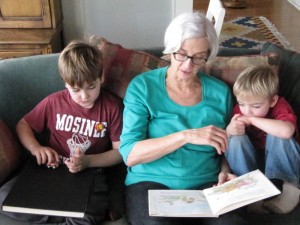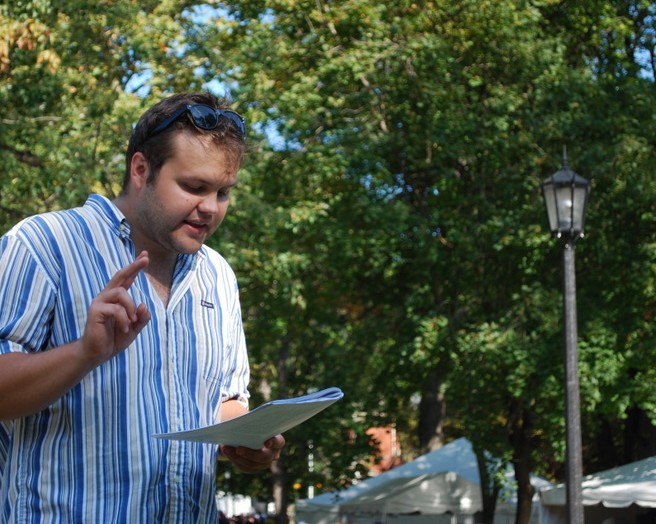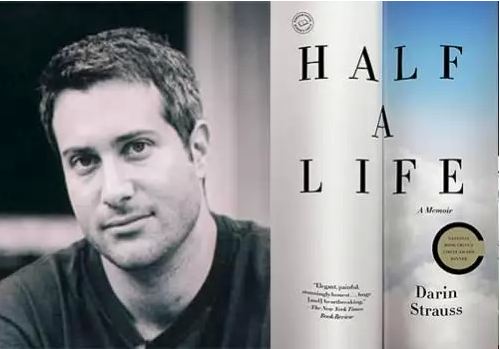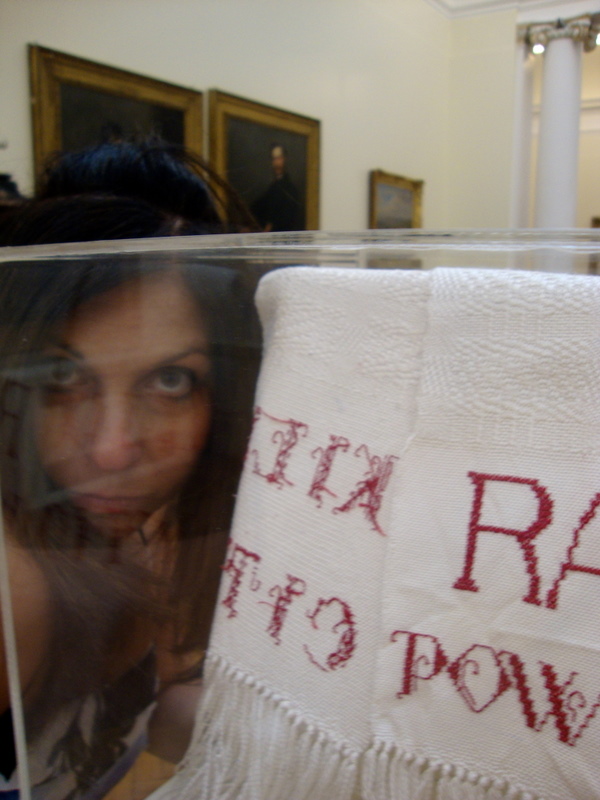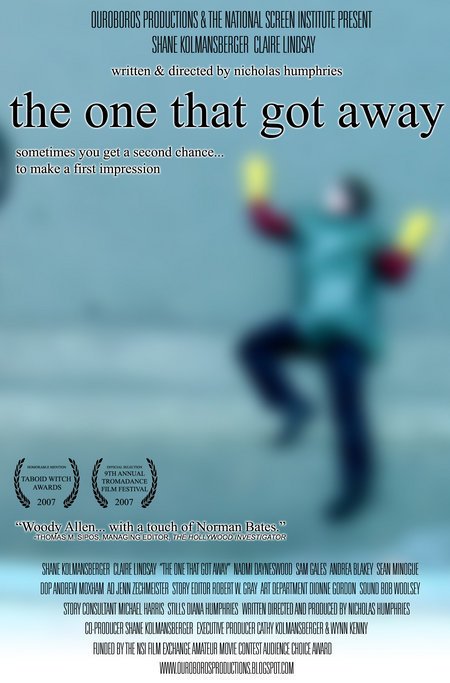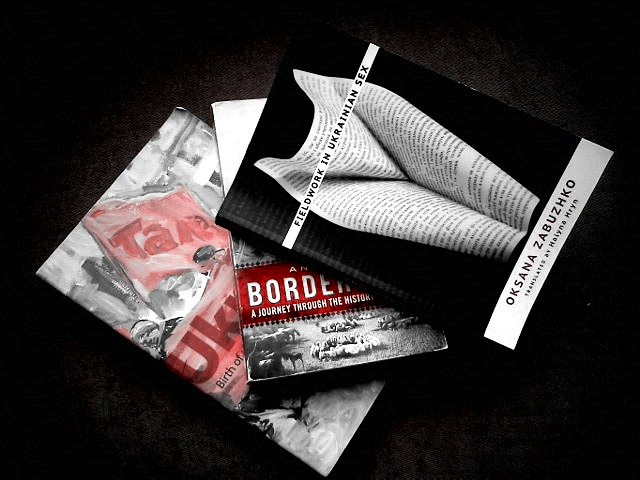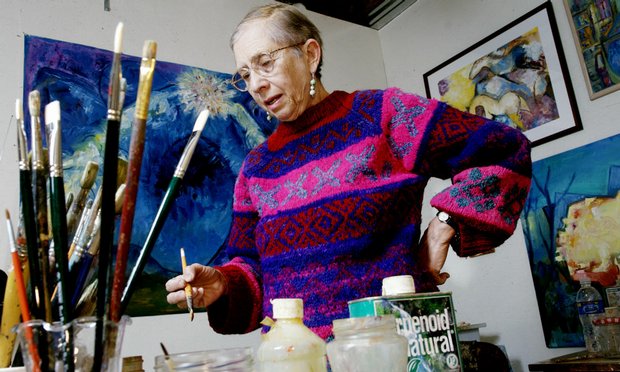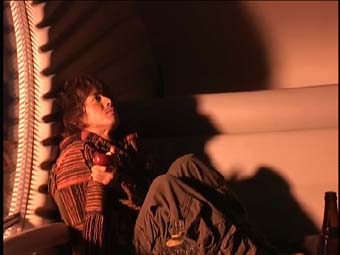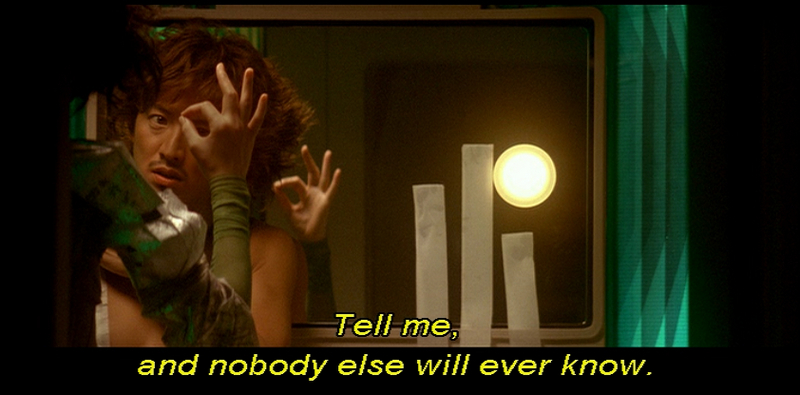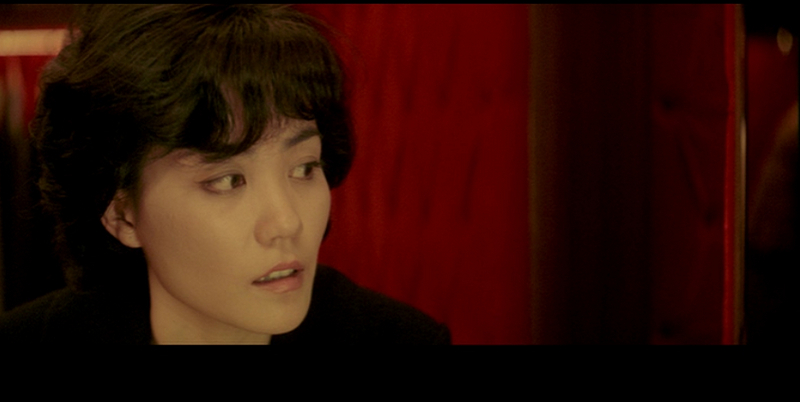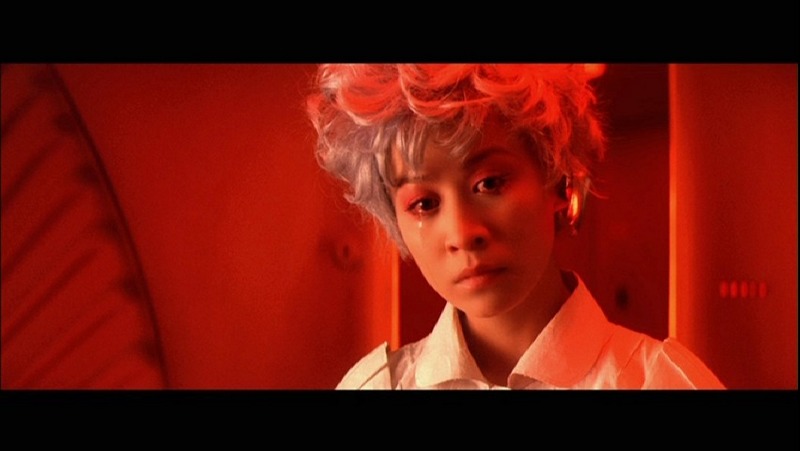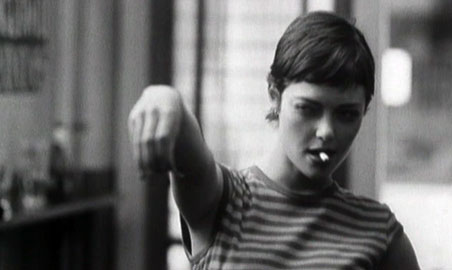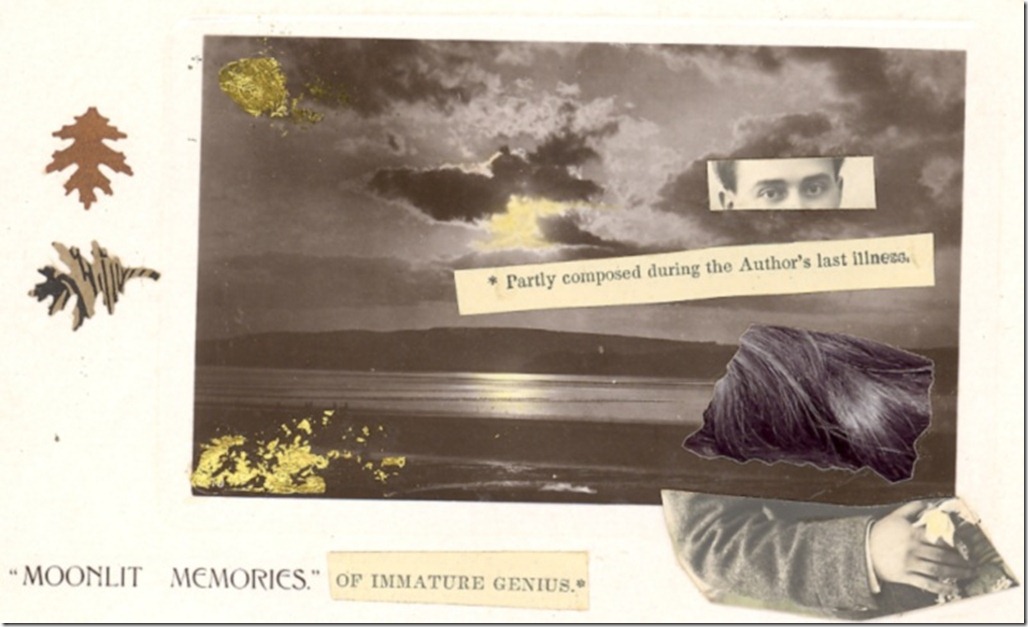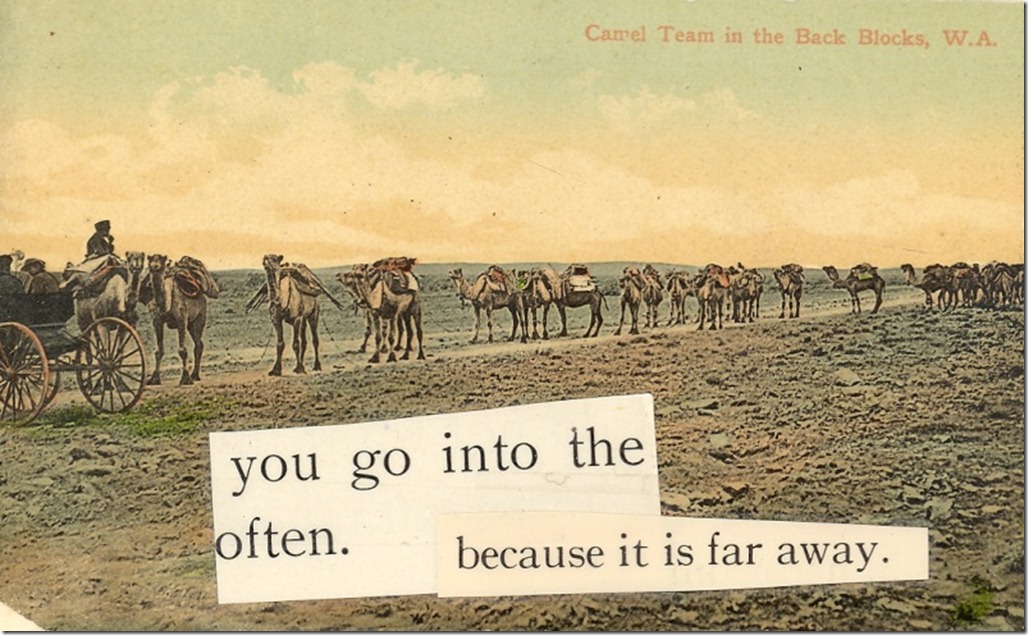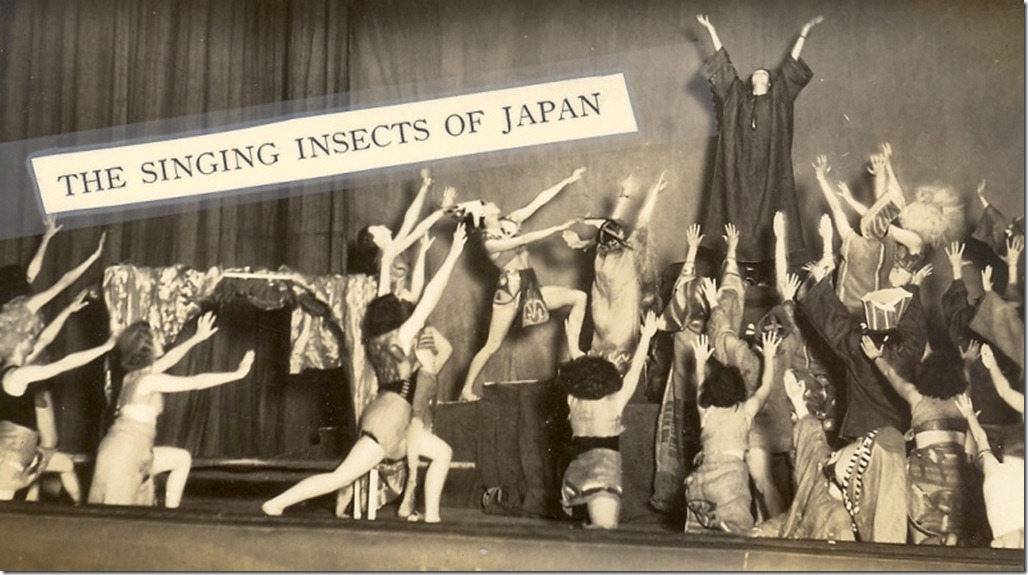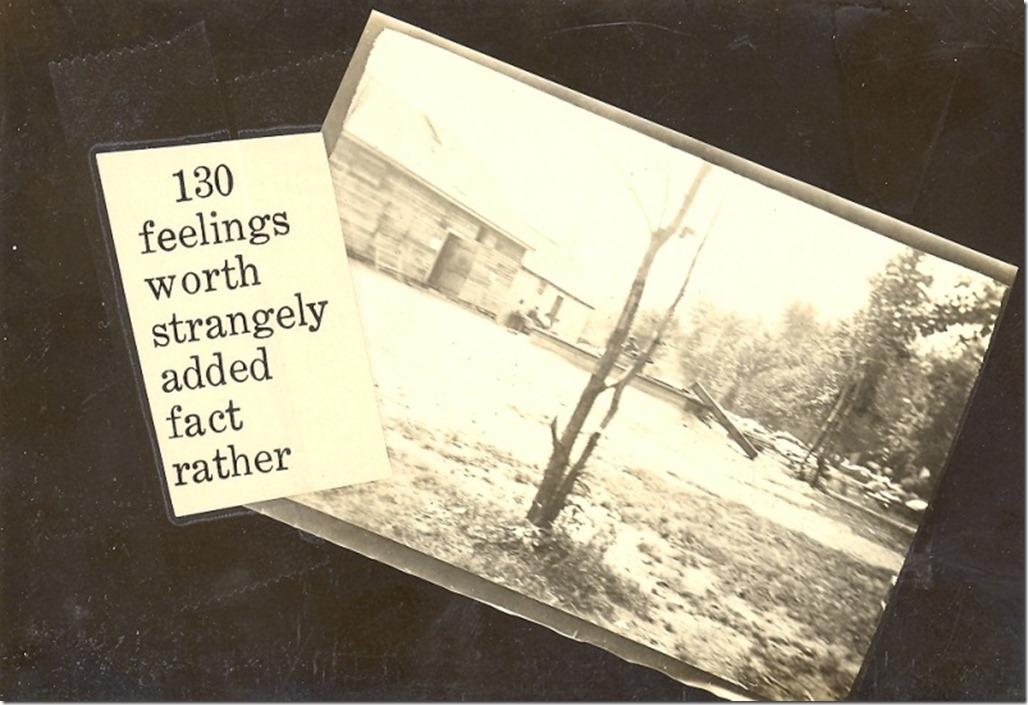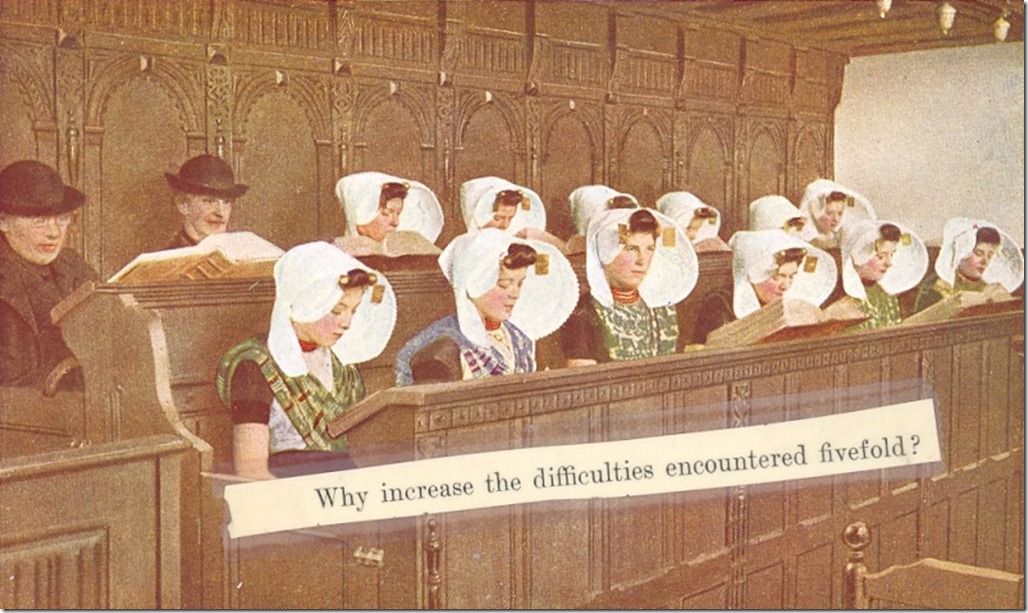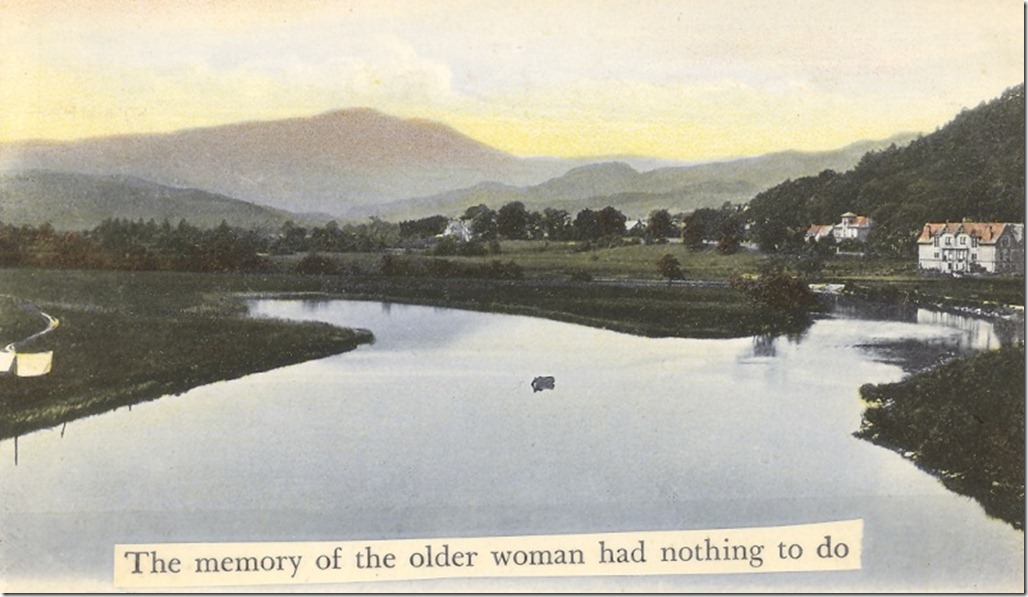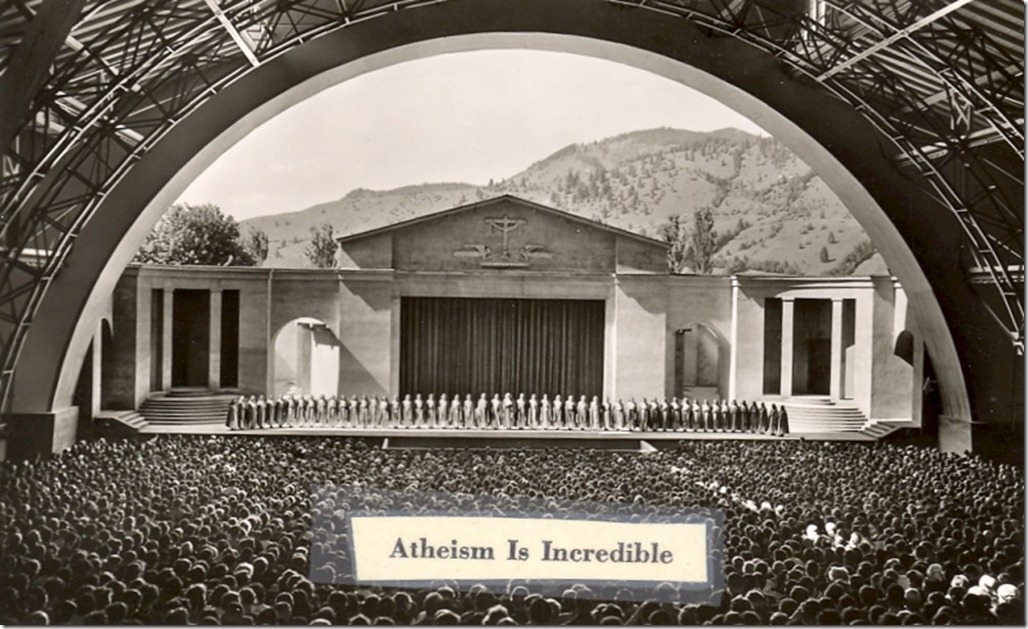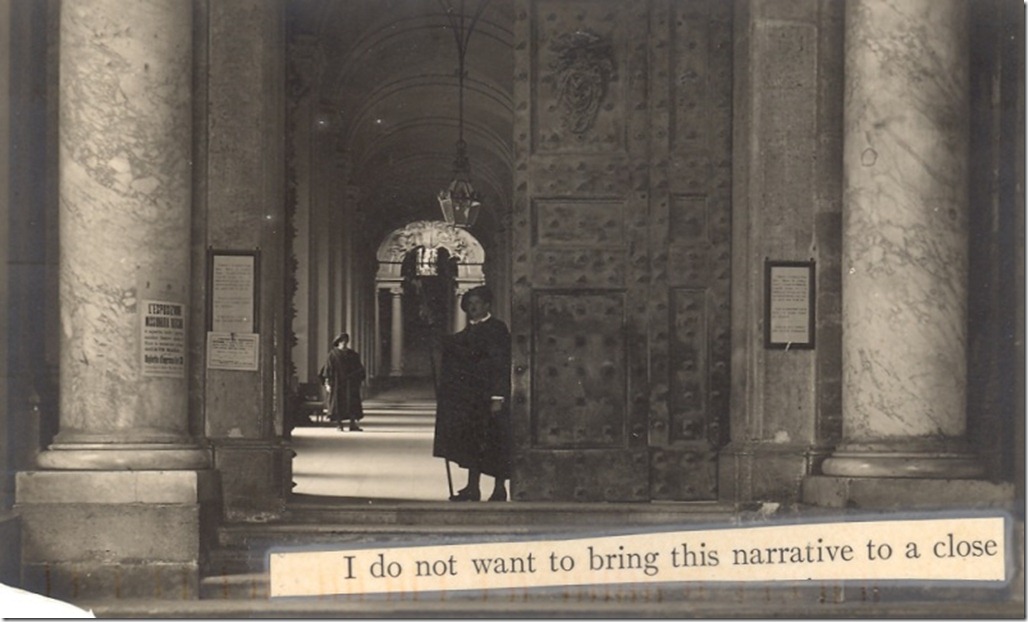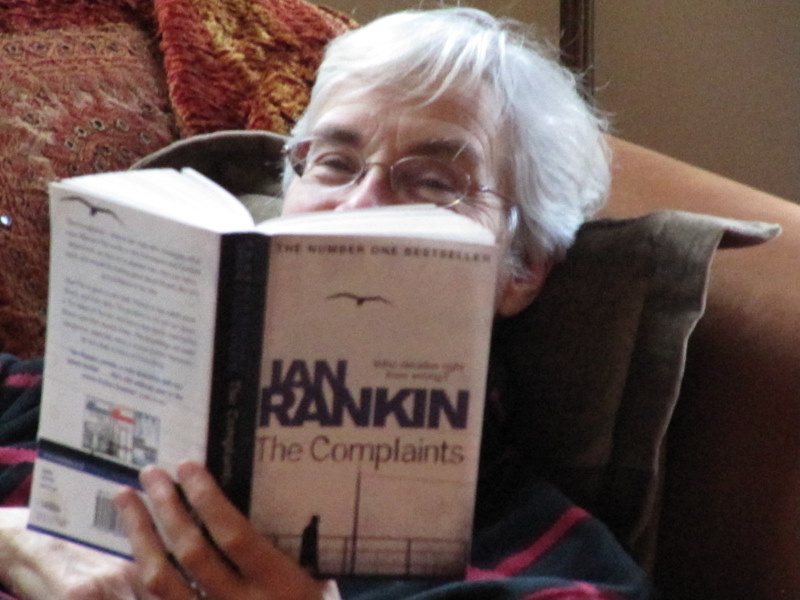
“Blue Clouds” deals up predatory males, mothers and daughters, betrayed and doubly betrayed women (an ancient story told with freshness and aplomb with just a hint of perverse eroticism), against an ironic backdrop of political engagement — even more ironic because it’s all told through the eyes of the cleaning help. Cynthia Flood writes like a telegram — terse, elliptical — but creates fictional worlds dense with character, drama and a sudden crimping of emotion. Cynthia Flood’s stories found their way into Best Canadian Stories twice (1997 & 2001) in the decade I edited the book; it’s wonderful to have her on the pages of NC. (The author photos are by Dean Sinnett.)
dg
The pattern often isn’t noticed till a man’s in his thirties, even forties. By then he’s had several — serious relationships, the comrades say. Serial monogamy, they say that too. If his teens were examined there’d be no surprise finding he’d favoured girlfriends with dear little sisters, but here at the hall people mostly arrive in their twenties. Their time before the movement is hidden, except what they pick to tell, and telling is cleaning.
Back up. Such a man, when he falls for a woman she has a daughter. Maybe two. Could be sons also, but he’s not aiming for importance in the life of a small man. It’s the small woman he wants. Oh, not to rape, though maybe a hug she’ll remember on a birthday, or when she’s back from summer camp. No, he wants to implant his image, so if she thinks Man it’s him. He puts his arm round her mother, tongue-kisses, turns to smile. This is how it’s done. Your mum likes it. Seen it, seen it, the offer to babysit. The young mum goes off smiling to her CR group. This guy really wants her to be liberated! He plays with the girl, helps with homework, is fun with her friends, and if she’s in her teens lets her know sideways that boys haven’t much to offer. He and she chat about how immature they are, how the girl deserves better. Then the break-up: he’s charmed by a fresh girl/woman combo. Stale mother, alone again. A child missing him can be comforted but a teen turns sour, specially to revolutionary mum.
Exceptions, yes. Roy’s a carpenter, in his late forties. On him, those years look good. He and Marion and her daughter came to Vancouver from the Calgary branch ten years ago. At the Friday suppers R and M are side by side at the big table. They dance, they picket and poster and go to conventions. Marion’s a lifer at the post office, friendly, considerate. Not much for theory. Jennifer just finished high school. Hasn’t joined the Youth. Comes with the grownups to the Oct Rev and May Day banquets, that’s all. Sullen.
Her father?
“None of your beeswax,” says the old one.
The true sign of no nastiness with Roy is that he and Marion and Jennifer don’t live together. To be under the same roof — the girl-hunters engineer and plot to get there, but this mum and her daughter keep their own place.
Enough chit-chat. The bathrooms at the movement hall are Monday. After every weekend, vomit’s here and there because the Youth can’t manage booze yet. Not only them, either. The divided bucket: dip mop in cleaning solution on one side, then in water so hot it hurts. Use the side-press wringer. Repeat, repeat. Disinfect the wheezing toilets. Smear abrasive cream on porcelain. Sprinkle deodorizing powder on the floor, sweep it up. The bathrooms won’t ever look like ads, but they’re better than the Cavalier’s. That’s down the street, Monday’s next job. Pub washrooms take twice as long to clean. Shovel, more like. Stinking loops of paper that never reached the bowl, condoms, underpants, butts, coke, bloody pads draped over the pedal-cans, smashed glass, the red crushed wax of lipstick.
§
The problem of the strong women is different.
The old one’s in her sixties. Pushy as hell to survive and support her girl (near forty now) and do the political. Husband? AWOL decades back, couldn’t manage her. Such a life, rebelling through Depression War Cold War, struggling for abortion and birth control, still at it, startled and happy to meet today’s young libbers. Hardworking beyond hardworking. Known to every lefty in the city, admired.
“No point any man sniffing around thank you very much. I like my independence.”
Used to be, her typewriter rattled on for hours. Arthritis now. Hates help.
Her daughter’s the opposite. When she comes round, not often, always for money, the old one’s sad after. Hides in a bathroom to re-braid her hair, the tiara brown still with grey woven in. Out again. Slam. “Jake, you call this sink clean?” Marion sometimes sits with her, talking quietly. A hug round the shoulders.
Back up! Women like the old one don’t mean harm. They’re just big. Breathing normally, they suck out all the oxygen. Beloveds can suffocate.
Enough. Cleaner, that’s the job here at the hall. And handyman.
Why can’t the TU comrades — revolutionary electricians carpenters fishermen longshoremen — shim the filing cabinet, rewire the ceiling light, put a new ribbon in the Remington when the old one’s fingers won’t? Because they’re not here weekdays. They work. Or, in this period of intensifying struggle, they’re on strike. Locked out. A demo, a flying picket, a union meeting.
The men on staff here were mostly students, before. They can’t put a handle on a pencil-sharpener, let alone finesse the old Gestetner. The present Organizer once took twenty minutes by the clock deciding whether to phone Toronto Centre long-distance. (No.) Swivels his chair about, reads, wouldn’t notice a mass uprising at the front door. Recently the old one reamed him out when a still-meaty chicken carcass vanished from the fridge. “There’s petty cash in this hall, too,” shouting. “Typewriters, easy to pawn. Open your eyes, asshole!”
Back up back up back up. Girl-hunters, strong women — these are types. Learning to identify, over two decades of cleaning here. Others too. The too-enthusiastic contact who toils at the hall night and day for months, then gone without a word. “Here on a visit,“ the cdes state.
The misfits, so-called, those with a serious lack, a family it may be, looks, social ease, fluency in English, even a job. They want compensation.
So do those mourning a religion or a love. Mourning a baby, once, but after two years dying of grief she revived and left.
As for the nut-cases, no one here or elsewhere knows what to do. Some cdes, forcibly removed in ambulances, come back to rant and throw furniture.
Back up!
Roy too lives in the old three-storey building near English Bay. The Sandringham. Good construction, not like now. Solid wood doors, brass carpet-rods on the stairs (tricky to clean), small delivery cupboards outside each apartment door. For milk, long ago, by horse-drawn cart no doubt. Roy’s on the top floor. Says Hello. Chats at the mail boxes, or by the laundry next to the small basement suite. In exchange for interior maintenance, reduced rent. A deal. Ideal.
Once Roy wisecracked about the old mole Revolution, underground. Nothing to say occurred. The place in fact is bright.
Most tenants are elderly, female, alone. Some dodder. Not Mrs Wolfe. That Saturday she came over because she’d been away a day or two, on Bowen, lovely weather, and was now afraid for Miss Nugent above her, who did not answer door or phone.
“But I heard a tap on my ceiling.”
To the second floor. In Mrs W’s bare spare kitchen, listening upwards to silence.
Then to the manager’s apartment, but Russell’s almost always sozzled since his wife died. Couldn’t locate a key. What a jeezly mess. Mrs W’s eyebrows up to the hairline.
The stairs with her again, third floor, seeking Roy’s skill and strength. Also he might know locks. Rap, rap.
Mrs W wondered, “That milk cupboard. Could someone get through?”
Broad male shoulders the problem, not only Roy’s.
He said, “I’ll phone Marion. Jennifer might.”
Not long till the two arrived. The girl slender as celery.
Roy broke through Miss N’s milk-door.
Mrs Wolfe’s trill. “Emily! Emily?”
Nothing.
The girl’s arms, head, shoulders into the aperture, Marion lifting legs to help. Jennifer’s bum, compressed, wiggling through. Roy’s gaze. Savouring. A tumble, a scramble. The latch clicking open.
What was expected. Not dead, out cold, one hip at a wrong angle. Ugly breathing. The kitchen floor puddled. Been there two days anyway, the ambulance guessed.
Miss N gone then, feet first as the saying goes, unlikely to return. Siren fading. Mrs W weepy, Roy and Jennifer slipping out, useless Russell barging in.
Marion. “A cup of tea, Mrs Wolfe? Your place? Best to take your friend’s keys.” Poking through the shabby purse, more tears.
Alone to clean up, also as expected. Floor soon done, but Roy to be all rethought. Marion too. The girl didn’t arrive alone. Not allowed? Separate apartments. What went on in Calgary?
§
Each Monday, the quality of the previous evening’s branch meeting is palpable.
Attacking the bathrooms, even a humble contact — a man who’s never joined, never paid dues, invented a party-name, raised a hand, spoken his word, taken to the streets, held a banner, waved a leaflet, a man who only cleans for statutory hours as he cleans all the rental spaces in this building, offices, storage rooms, cubbies for solo notaries accountants psychics — even that man can smell the night’s doings. Fear sometimes. Anger, agitation. The tang of power.
To sense.
Long long ago, a so-called friend of the mum whispered she hadn’t wanted this baby. Tried to have it out, failed. Illegal then and still. This whisper heard at thirteen, approx. Why tell? Mean. A child’s word, correct. Rancid with meanness. Much thought given to that whisper.
Life alone with her, scanty hard rough, tempers lost voices raised but never an unwanted feel, not even with the school troubles, abc and xyz and all between. She wasn’t a big person, either, plenty of air. Though large when gone.
Years later, realizing that teller’s envy. Of the mum. With her failure by her side. Warmth ran all the way back through the shared time.
§
Back up back up.
The hall, one morning — like sniffing leftovers from the fridge, Nose declaring On the turn. Irrevocable. Trouble.
At big tables, cdes fold, staple, lick stamps, smoke. From the back room, no printing sounds because the monster’s on the fritz. This week’s forum leaflet is just a ditto. Nobody’s pleased. Waste-paper all over the O’s office, the basket full. His plaid shirt stiff with sweat. What a reek. The worker daily handling dirt grime scum cum dust rot grit mould ooze shit pee grease slime puke scuzz grunge — that one, his body’s clean. Fresh overalls. On such a day, routine sustains. Ammonia. Baking soda. Snaky wet-mop whispers, swirling over lino. The power of bleach. New rubber gloves. Where not pitted, the chrome shines.
Tired.
The old one isn’t talking. Sternly brings coffee. Not enough sugar. After twenty years she should know.
At last, check the stuck Gestetner. Ink can’t be forced through. Roller, drums, something inside, invisible. No time now to take it apart.
Tired. A nap on the fold-out cot? Better to exit this bad air. The Cavalier’s dirt a relief.
§
Late afternoon, going home.
Mrs Wolfe outside the Chinese grocery. Holding a turnip. “Jake, that Jennifer is in the building.”
Clarification. Mrs W has gone up to air out Miss N’s place, launder the lonely tea-towel and undies in the hamper. Has seen the girl.
“I’ve never liked that man’s looks. Trouble coming.”
In she goes, to pay for her vegetable. So she too has a list of types. If she and the old one met? Scorn, to start. Prim proper, tough coarse sharp. They’d find links though. Care for others, disapproval. Mrs W was once a crack typist.
Looking up at Roy’s windows. That girl in his bed, bum and all. The mother alone.
Telling should have happened then. A word to the old one. To the women’s fraction leader, not that Ms Loose Tits ever notices a cleaner’s work. To the O, even. Should, should, telling is cleaning, but. But she was under the Sandringham’s roof, night after night. Close by. Wake, sense. Once, up the carpeted stairs. Silence. Stained glass backlit by the moon. The corridor still, by Roy’s. No vibrations.
Some days later, he’s in the laundry room. Cross. Shoving sheets into the dryer.
“Nothing but meddling old women here.”
They find somewhere else. At night, the building’s different.
§
On Wednesday the off-smell at the hall is overlaid by tension, like before a demo, or a bitter forum where all know the TU cdes will haul some yelling sectarian out. What? There’s been no announcement.
Kitchen.
After the big Friday suppers it’s late when cdes clean up, all are tired, the fluorescents cast distorting shadows. Mondays, bathrooms take precedence. Thus, today’s task is to degrease. On counters, sinks, oven racks, shelving, baking pans, soup-kettles, sharp liquids force soft fats to huddle into little orbs while hard ones slide off like scabs. The new spray-can foams penetrate where a soapy rag can’t. Skin itches. Eyes hurt. The old one reads aloud the cans’ contents, but she’s no chemist. Familiar cleansers are harsh anyway. Over time, steel wool blurs fingerprints.
Now all squeaks clean, but the sink won’t drain. A wire hook fishes up carbonized macaroni thick with tapioca cement. Still water won’t rush down. The cut-off valve. A bucket. Hands and knees, to the j-pipe. Wrench. Open. Scrape, but the foul blockage lacks any spoon, bottle-opener, pencil. No obvious blame. Back painful, twisted. The Gestetner can wait.
§
Work socks, cheapest at Army & Navy. Parcel in hand, out to sunshine, and on the corner a group of women. Not young, not libbers. The light’s hard on used skin, bare arms. A chocolate bar, shared. Laughter in the sun. Downlines by the lips curl way up. The old one’s daughter waves her cigarette in the air, a big circle, more giggles, affection all round. Watching them, a fellow on crutches. Once a logger? Skid row’s full of broken men. Coal dust ground into every old miner’s cheeks, forehead, ears, into the eyelids’ red linings.
§
“Jennifer is eighteen.” The old one speaks through tight teeth. “A woman grown.” Purple eye-bags. “Won’t listen, naturally. Little fool. As for him. . . .” She goes on scalping potatoes for supper.
The big machine releases the coils of its hose.
To run the vacuum is to be doubly invisible. From room to room the roaring goes without a glance from cdes rolling out paper tablecloth, slinging cutlery, setting up chairs and lectern and the lit table. Fridays aren’t as important as Sundays, but they do matter. Suppers and forums draw contacts.
The cord’s too short to do the whole place in one go, so pull from one outlet, plug into another. The beast snorts up dirt. In the noise-gaps comrades go on talking loudly as they pin up the regular decorations, posters of screaming naked child, screaming kneeling woman, man shot dead in the ear, a president’s snarl, women holding sky.
Someone surprised those two in Stanley Park. Movement behind bushes. Not just someone. Marion. She made a scene at the branch exec.
Jennifer and Roy moved the girl’s stuff to his place, meanwhile. Every single thing.
Jennifer wouldn’t listen to the old one. Laughed at Marion. No, the mother slapped the daughter. True, both.
Roy’s quitting the movement. No, he refused to quit. Cited women’s liberation, the girl’s right to control her own body, choose lovers freely.
At this the mother shouted, “Bullshit! God damn you to hell.” Lots of atheists still curse by God. The women’s fraction mostly on side with the mother. Two leading women against.
The O’s torn. Roy might be expelled. Mightn’t.
As the vacuum noses towards its cave, the old one wades into the hissing gossip. “Shut up, the lot of you! Can’t you see it’s a tragedy?” Throws down her apron, blunders weeping to the door and out into summer rain.
About this work. After the vacuuming, no one says, “Wow, look at the floors!” Cover given by the noise is unnecessary. Stocky, not tall, not authoritative, not admired by any girl. Who’ll observe a toilet’s blanching? An unspotted mirror, shelves unfurred? Young cdes assume things clean themselves. Telling is cleaning. Without, the inexorable slide from malfunction to breakdown, mess to filth.
Rare, to eat supper at the hall. This evening the tables packed, loud. Who peeled the spuds after the old one left? No matter. Plain food, plentiful. All await, none saying so, the arrival of — Roy? He’d have the nerve. Jennifer? Raging Marion?
None.
Staying to hear the speaker is beyond rare, but to leave feels incomplete. Plus disloyal to the old one, still AWOL.
The draft-dodger at the lectern is black Irish, his family raw from Dublin to New York somewhere in the 19th c. Witty yet dead serious. A vocabulary to stun. Vietnam his theme. His topic, divisions in the anti-war movement over slogans. With vigour he parses Victory to the Vietcong, Bring The Troops Home, Stop Canadian Complicity, U S Out Now, arrives at the right conclusion — and leaps off again, soaring to a prosecutor’s summing up of capitalism’s bellicose crimes. Then a paean to the brave Vietnamese. To the sacrifice and glory of the workers’ movements around the world. Their history. Their future.
When with a startled look the speaker ceases, applause. Spontaneously all rise to sing the Internationale. He blushes. Then the old one’s up the aisle, tiara and clothes damp with rain. She claps him on the back, the first of many.
Not including the old one’s daughter. Snuck in. Nearby. The bleak face hateful, scornful of hall, speaker, song, applause. Oh why tonight, her mother happy? How to get rid? The forum over, everyone in motion. Hand to pocket but too slow. Those two pairs of eyes find each other.
A kind of finish. The day not yet over, though.
To the Cavalier, as a customer. Alone, to consider that young man’s exultation. The old one’s sorrow. Days of blame before she’ll be anything like herself. If hand quicker to pocket, all changed? No. For sure that daughter wants to wound.
Back up. No, no, this isn’t like not telling about the girl. That wasn’t for sure. Might have changed things. Coward. Worse.
A second beer. The daughter’s contempt aims at her mother, but it’s common these days on the call-in radio shows, TV, the talk on buses. Loathing. Fear. But what if no young rebelled? Just grew old? Before departure, a visit to the men’s room. Disgusting, though scrubbed savagely this morning. There’s the answer to What if.
Then the dark hike down to English Bay. Will Roy’s bedroom light be on? No, dirty coward. They’re elsewhere.
§
Sunset.
Here on the beach at English Bay, a sharp curve in the seawall makes good shelter to watch the sky split into gold and orange feathers. People come round that point squinting westward, don’t see someone almost at their feet on the grey sand.
Can that be Roy, hungry, hang-dog?
Be certain!
Up from beach to path, scurry ahead of the pair. Dip down by shrubs.
She’s in view first. Cat got the cream, look at me! Not a glance at that desperate figure by her, starved. Watching a handsome man thus, pure pleasure. Hot tasty spite. Meanness. Typical.
The colours in the sky go on for hours, as they do in summer.
§
Weekly, the Bissell beats as it sweeps as it cleans the carpet-runners on the first floor of The Sandringham, the second, third.
Dust banisters. Dust the sills of the stained-glass windows, nearly colourless by day.
Behind Miss N’s door, silence.
Behind Roy’s too.
Neither he nor Marion appears at the hall, their absence a sore licked by sixty tongues a day. Other cdes take on their assignments. The O studies his documents. For no reason the old one’s arthritis lets up, and at 110 wpm the Remington’s carriage-bell rings madly. Newspaper copy, minutes, letters, drafts of leaflets and pamphlets.
§
The Cavalier’s lino is so scarred and broken that cleaning the floor is ritual only, but the front windows still do respond.
What? The old one’s limping down the street toward the pub. Well-known of course, Red Annie, local character.
Out of the boozy dim, vinegar rag in hand.
“Jake, it’s Jennifer. Get Marion.”
In the struggle towards reading, some words are fireworks. War, for example, even if it comes up as raw, once learned isn’t forgotten. Same with hearing. That name’s a floodlight.
Run.
“Good comrade!” cries the old one.
Seven blocks downtown, hot bright streets, breathless.
At the post office, the mother’s on a break, where? Run upstairs, the cafeteria, panting, not there, down, corridors, where? Doors, counters, asking. At last Marion’s surprise, terror.
“Quick,” she gasps, exiting the PO.
Vinegar rag waves for a taxi.
Arrival. Marion headlong into the hall.
The cab waits.
From the Gestetner room, the O’s swivel chair emerges. Slumped in it, Jennifer, eyes half-closed. The old one pushes the chair forward, kicks at Roy, elbows him off.
“Mummy?”
“Right here, darling.” An embrace. Marion grabs the chair, heads for the door. Roy trails.
With the old one, a shared stare at the print-room. The Gestetner to be eviscerated. The ditto machine. Folded-out cot. Silkscreen. Splats on the lino.
“Later!” she cries, pulling an arm. “They’ve been in there for weeks. He’d got a hall key somehow.” Passing the O’s office. “Damn fool never noticed.”
Out to the sidewalk.
“Bastard, how could you?” The mother spits.
Roy’s chin drips. “It wasn’t a quack I took her to! I’d never do that, Marion, you know me! I love her.”
“In we get, darling.”
Taxi’s off to Emergency. The not-father-to-be runs after. “Marion, come back!” Slows. Slinks off.
Double-quick, to the Cavalier for a mickey. The swig’s sharp, hot.
Back. Into the kitchen, at the big table by the old one.
She swallows.
Again.
Calmer now.
In a bit she’ll go over to the Remington, won’t notice the bucket’s clank. Cleaning solution this side, pink water that.
“If the cops don’t come down on us for aiding and abetting, we’ll be lucky. Procuring, even. Bloody irresponsible.” She doesn’t know the half of that. “And you heard, he quote loves her. Typical.” Sighing, she sets the flask aside, smoothes her hair.
§
At the PO, Marion puts in for a transfer and returns to Calgary.
Strong Jennifer moves to Toronto. Bum never seen again.
At the next branch, Roy shoves in to argue his case. TU cdes strong-arm him out. In this the old one doesn’t exactly take pleasure, but she doesn’t not either.
Russell manages to locate the Apt For Rent sign, pens 2 clumsily before Apt.
A day later, a summons from Mrs W.
“Look what that man did before he left.”
The Sandringham’s garbage cans, tossed. Newsprint all over the alley, cat-litter, tins, jars, peels and grounds, bacon-fat, tea-bags. Slimy leavings coat the cans’ insides. After tomorrow’s pickup, scrub. Russell won’t do it. Somebody has to.
“He even threw these out.“ Wet white papers stick to asphalt, drift under parked cars. She holds out a handful. “From when Jennifer was a little girl.”
Artworks, back through elementary. One picture has a strip of green along the bottom, red flower-dots above, a white sky thick with paint. Along the top are plump blue clouds with scalloped edges.
“Poor girl. She got that all wrong too.”
This doesn’t cover the whole situation, yet nothing to say occurs. Mrs W stoops to gather up more refuse.
—————————————————
Cynthia Flood’s latest collection of short fiction is The English Stories (Biblioasis 2009). Her stories have appeared in many Canadian magazines and anthologies and in Best Canadian Stories, and have won the Journey Prize and a National Magazine Gold among other awards. She’s at work on a fourth collection of stories and has published recently at FoundPress.com and Joyland.ca After decades in a house on Vancouver’s East Side, she now lives in a 7th-floor apartment overlooking Lost Lagoon in Stanley Park. Heaven!
